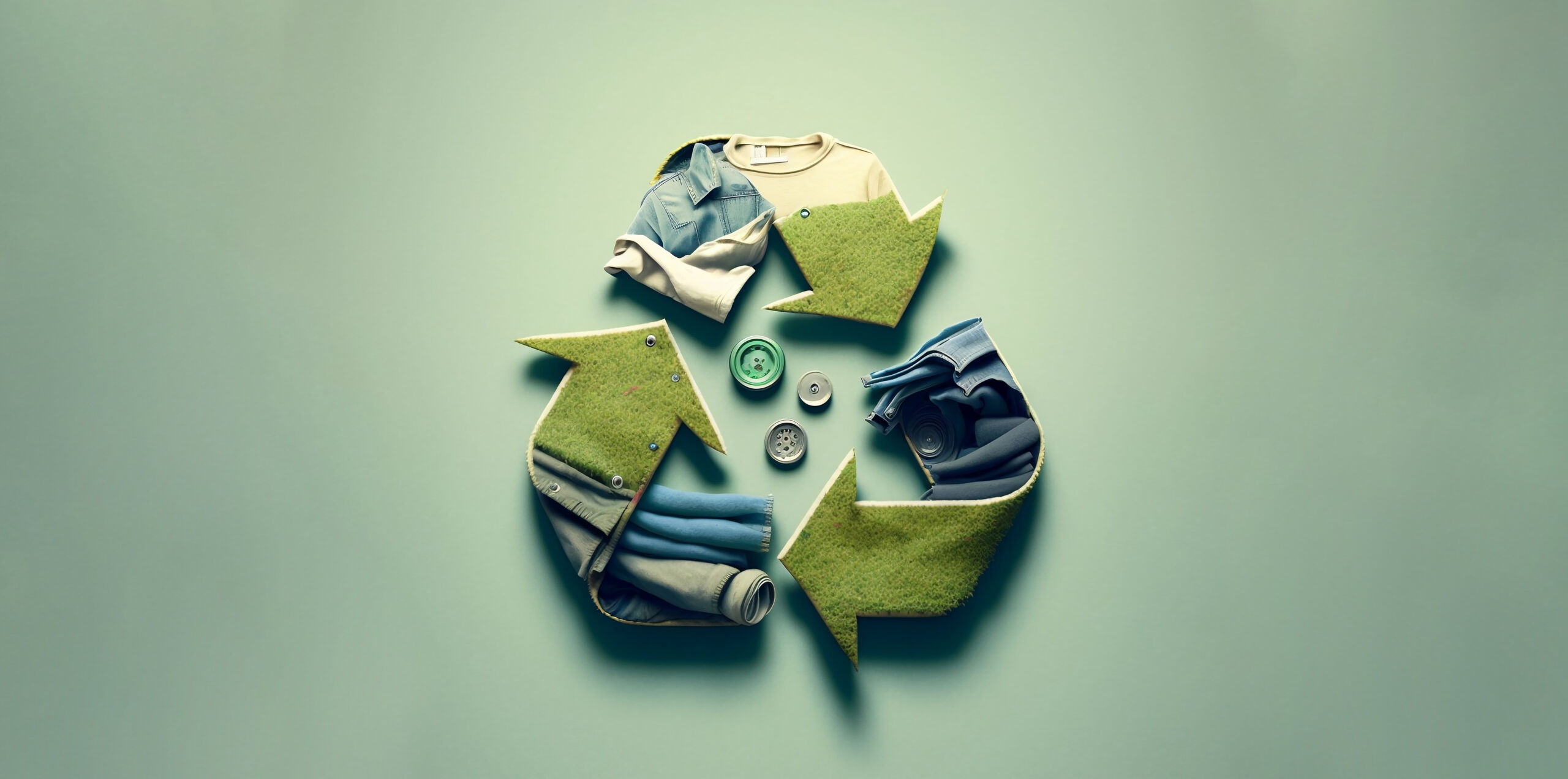Cape Town Sustainable Fashion Week: Highlighting Green Innovations
Cape Town Sustainable Fashion Week: Highlighting Green Innovations
Blog Article
Remain Ahead of the Contour by Checking Out Ingenious Style Trends
In an industry as vibrant as fashion, remaining ahead includes greater than simply following current patterns-- it demands an expedition of technology. Smart textiles, as an example, are transforming garments into practical masterpieces, while 3D printing is transforming design procedures with its personalized, waste-reducing capabilities. As sustainability becomes a cornerstone, advancements like green products and round fashion methods are improving ecological obligation - Cape Town Sustainable Fashion. Furthermore, the merging of technology and style heralds a new period of customer involvement. How, after that, can these arising trends redefine the future of style, and what effects do they hold for brand names seeking to grow in this evolving landscape?

Accepting Smart Textiles
Recently, the apparel industry has actually seen a transformative shift with the assimilation of smart textiles, an advanced development that mixes technology with textile. This evolution represents not only a fusion of aesthetic appeals and capability but additionally a significant leap in the direction of sustainability and personalization in vogue. Smart fabrics, likewise referred to as e-textiles, installed sophisticated electronics such as sensors and conductive threads within the material, allowing garments to engage with the atmosphere or the wearer.
These textiles are developed to check physical criteria, such as heart rate or body temperature, offering real-time health and wellness analytics. Past health and wellness applications, smart textiles are also being used for adaptive clothes, which can change shade or pattern in feedback to environmental stimulations, therefore using a dynamic style experience.
Moreover, the growth of energy-harvesting fabrics that generate power from activity or sunshine is leading the way for self-sufficient wearable technology. This technology is interesting ecologically aware customers and designers intending to minimize the eco-friendly impact of fashion. As r & d in this field advance, wise fabrics are expected to come to be significantly prevalent, improving the landscape of modern fashion with their multifunctional capabilities.
The Surge of 3D Printing
Changing the manufacturing landscape, 3D printing has actually emerged as a game-changer in the fashion business. This cutting-edge modern technology has allowed developers to press the borders of imagination, generating complex and customized garments that were formerly unthinkable. By leveraging electronic layout and additive production, 3D printing assists in the creation of complicated geometries and patterns, enabling developers to try out new structures and frameworks.
A noteworthy benefit of 3D printing in fashion is its capability to create on-demand, minimizing waste and decreasing supply demands. This effectiveness not just optimizes production processes yet also enables for fast prototyping, enabling designers to bring their visions to life in a shorter timeframe. Moreover, 3D printing sustains personalization to a degree unequaled by typical techniques, providing tailored fits and unique styles customized to individual consumer preferences.
The rise of 3D printing has actually additionally equalized style, making it easily accessible to arising developers who can currently produce top quality items without substantial financial investment in conventional manufacturing infrastructure. As technology remains to advancement, the garment industry is positioned to harness the complete capacity of 3D printing, discovering brand-new materials and strategies that will definitely redefine just how fashion is developed and produced.
Sustainable Style Technologies
As the fashion business faces journalism demand for ecological obligation, lasting style advancements have arised at the forefront of transformative change. The expanding understanding of eco-friendly effect has fueled a shift in the direction of even more eco-conscious practices and products. Designers and brand names are currently focusing on sustainability, incorporating approaches that minimize waste and lower carbon footprints.
One considerable growth is the rise of round style, which stresses recycling and upcycling to extend the lifecycle of garments. This strategy not just lowers waste but additionally urges customers to adopt a much more mindful technique to apparel usage.
Another innovation depends on the fostering of ingenious dyeing strategies that make use of waterless processes or natural dyes, consequently minimizing the substantial quantities of water and chemicals commonly utilized in fabric dyeing. Moreover, innovations in biotechnology have brought about the production of lab-grown natural leather and textiles, providing eco friendly and cruelty-free alternatives to traditional materials. Through these pioneering initiatives, the fashion business is making significant strides in the direction of a more sustainable future.

Tech-Integrated Garments
Tech-integrated apparel stands for a cutting-edge blend of fashion and modern technology, improving exactly how people interact with their clothes. This innovative domain is marked by the addition of wise textiles and embedded electronic elements, improving both capability and visual charm. From physical fitness trackers installed in sports apparel to heated jackets regulated via mobile phone applications, tech-integrated clothing uses Your Domain Name customers extraordinary comfort and flexibility.
Introducing brands are driving this pattern, concentrating on producing garments that react to environmental stimulations or customer commands. For instance, some garments can change shade or pattern in response to temperature changes, while others include biometric sensors to keep track of health and wellness metrics like heart rate or anxiety degrees. The seamless assimilation of modern technology into textiles also expands to environmental sustainability, with efforts to develop self-cleaning fabrics or garments that adjust to weather problems, hence lessening the need for several layers.
In addition, the advent of wearable technology is not just limited to clothes but encompasses accessories like watches and eyeglasses, further widening the extent of tech-integrated style. As the market remains to introduce, the possibility for personalization and customization in apparel expands, offering customers unique, tech-enhanced fashion experiences that accommodate their specific needs and preferences.
Future of Virtual Style
Recently, the future of online style has become a transformative pressure within the sector, leveraging developments in electronic modern technology to redefine just how style is created, experienced, and taken in. By integrating augmented reality (AR), online truth (VIRTUAL REALITY), and 3D style tools, designers can now craft immersive and interactive experiences that go beyond traditional style limits. Digital fashion permits for the production of garments that exist solely in digital settings, providing limitless possibilities for innovation without the limitations of physical manufacturing.
This electronic change not just provides opportunities for imaginative expression yet additionally addresses sustainability worries intrinsic in conventional fashion techniques. Cape Town Sustainable Fashion. By getting rid of the demand for physical resources, virtual fashion reduces waste and minimizes carbon footprints. Furthermore, the surge of virtual style straightens with the enhancing customer need for distinct and personalized experiences, as virtual garments can be personalized and tailored to specific choices with simplicity

Conclusion
The style sector's future lies in the integration of ingenious technologies and lasting practices. Digital fashion is poised to redefine customer communications.
In current years, the visit their website fashion market has actually witnessed a transformative shift with the assimilation of smart textiles, a sophisticated advancement that blends innovation with textile.As the style market grapples with the pressing need for environmental obligation, sustainable style innovations have emerged at the forefront of transformative adjustment.In current years, the future of digital style has actually emerged as a transformative force within the market, leveraging developments in electronic innovation to redefine exactly how fashion is produced, experienced, and consumed. The increase of online fashion lines up with the boosting consumer demand for special and tailored experiences, as virtual garments can be customized and tailored to specific preferences with convenience.
The style market's try this web-site future lies in the integration of sustainable methods and cutting-edge modern technologies.
Report this page